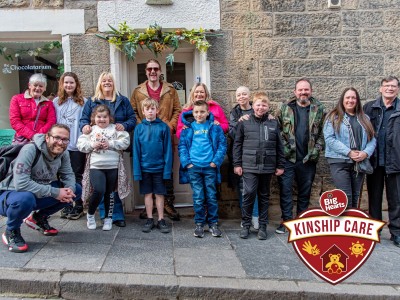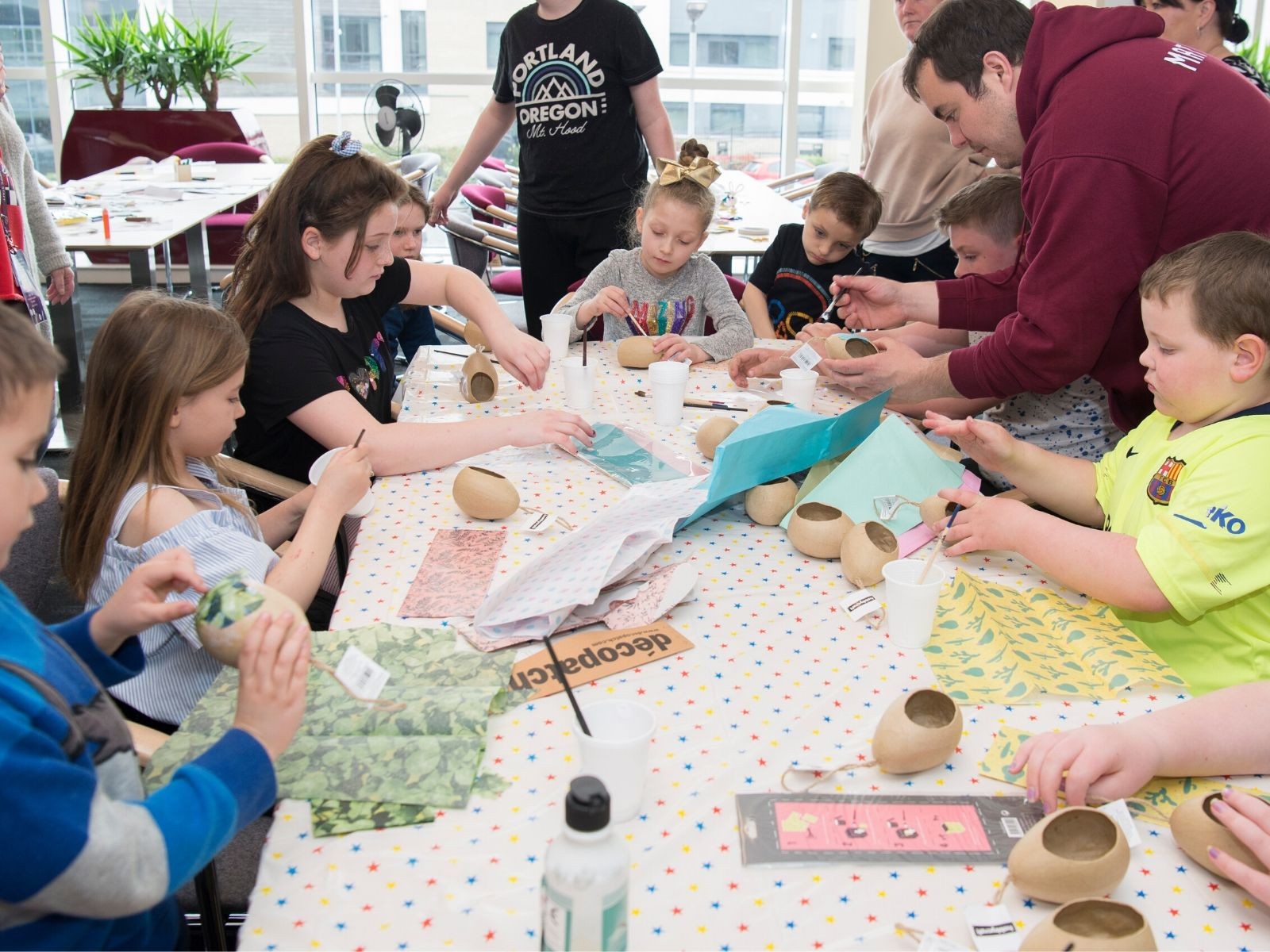Kinship Care Programme

Big Hearts’ Kinship Care programme was launched in October 2015 as our first family-focused programme.
Our charity offers a range of comprehensive support to address the emotional, practical and financial challenges faced by young people and their carers:
- Kinship Family Group where children and carers can meet with other families in a similar situation whilst receiving bespoke advice from our staff team.
Day/Time: Every Tuesday, during term time, 4.30pm – 6.30pm.
Location: The Shed, Tynecastle Park (EH11 2NZ).
To attend, please contact sandra.henderson@bighearts.org.uk – 07990 799 889.
- Coffee Mornings that provide a safe space for kinship carers to catch up in confidence, get peer support and share any specific challenges they encounter.
Dates: Every 2nd Monday, during term time, 10am – 12pm.
Location: The Shed, Tynecastle Park (EH11 2NZ).
To attend, please contact sandra.henderson@bighearts.org.uk – 07990 799 889.
- Men Carers Group based on peer-support through social activities out in the community aimed at improving the connections and wellbeing of male kinship carers and father figures.
Location: Depending on activities, various locations across Edinburgh.
To attend, please contact connor.mcnally@bighearts.org.uk – 07435 904 935.
- That’s Me! find out more about our teenage group here
- Befriending find out more about our Befriending programme here
Big Hearts’ Kinship Care programme is currently funded by: The City of Edinburgh Council, The National Lottery Community Fund and The RS Macdonald Charitable Trust.
Kinship Care is where a child lives with a family relative full-time as their parents are unable to care for them. This can be due to ill-health, substance abuse, death etc.
Kinship Care is common in Scotland. Statistics estimate that a 1 in 3 of children currently ‘looked after’ in the country are in Kinship Care.
These placements can be arranged formally by the local authority or informally through family supporting their own. It is estimated that there are between 11,000 and 17,000 informal Kinship Care arrangements.
Due to its hidden nature, this form of care is not well known leaving families feeling isolated and under-supported.
